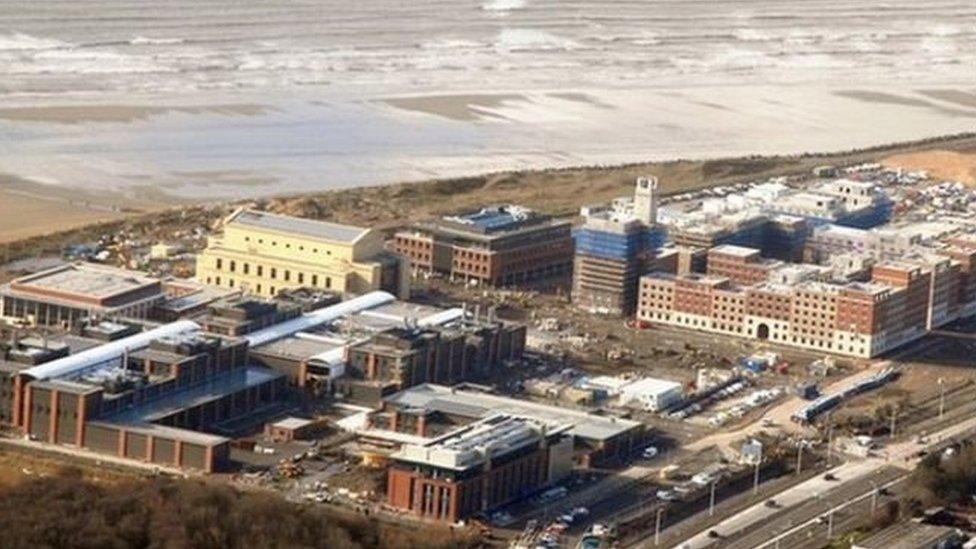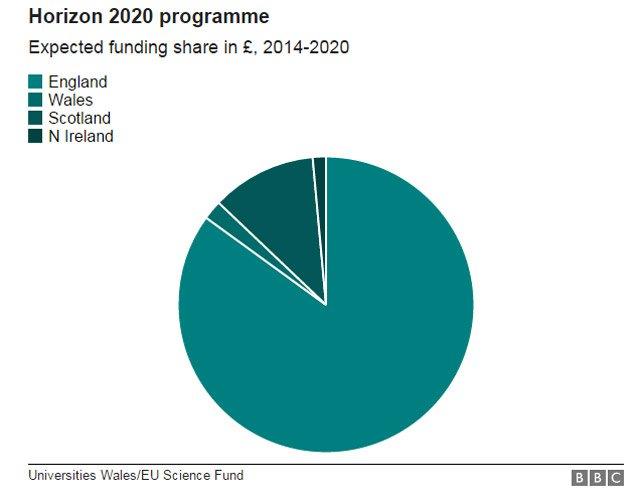Welsh universities firmly behind EU membership
- Published

Welsh universities have nailed their colours firmly to the mast in the referendum on the UK's membership of the European Union.
They have received millions from the EU for research and new buildings.
The representative body Universities Wales says this funding ultimately has huge benefits for the Welsh economy.
But the Leave campaign say that universities and science would continue to get at least the same level of investment after Brexit.
The Remain camp say that is impossible to guarantee.
Some who want to leave also argue that the broader economic and democratic case for leaving, outweighs concerns about future funding for universities.
Earlier this month, Universities Wales published an open letter in which it outlined what it sees as the benefits of EU membership.
The letter, signed by the chair of the body, Cardiff University Vice Chancellor Colin Riordan, said the free movement of students and staff "enriches the student experience" but also made a contribution to the Welsh economy "worth hundreds of millions of pounds".
It talked about partnerships with other EU researchers driving economic growth and innovation in areas such as healthcare.
It also points to the economic impact of EU students themselves,, external claiming it was worth more than £70m a year off campus in Wales.

Swansea University campus development received £95m of European funding
Swansea University's Bay campus received £35m from the European Regional Development Fund and £60m from the European Investment Bank.
Swansea University's Vice Chancellor has warned the university may have to downsize in the event of a vote to leave, external, potentially leading to job losses.
But a Cardiff University academic making the case to leave the EU argues that the money invested in Welsh universities is a diversion of the funds the British taxpayer contributes.
Kent Matthews, a professor of banking and finance at Cardiff University, says that outside the EU, universities like other institutions, would have to argue their case for the funding.
And he says "academic excellence is what generates funding".
The quality of UK universities is also the key to attracting collaborators in other EU countries and across the world he said, rather than political structures.

Those who want to remain, point to the EU's Horizon 2020 - a multi billion pound research and innovation programme - and say Welsh researchers are set to draw down over £218m from the fund by 2020.
But Prof Matthews argues that funding is open to bids from academics outside the EU too.

The panel debated 'should universities care about the EU referendum?'
In a referendum debate organised by Cardiff University, former EU Commissioner Lord Kinnock clashed with UKIP AM Neil Hamilton over the role of the EU in medical research.
Leave campaigners claim EU rules on clinical trials has created unnecessary bureaucracy which has restricted innovation.
But Remain campaigner Lord Kinnock said the EU has listened to concerns and is introducing a new system which he says has been widely praised by scientists.
During the debate he said being outside the system would be "putting lives in danger".
"The ability to advance the attack on cancer, on diabetes, on a variety of other major killers is inhibited if we are not getting the proper framework for conducting that research with the essential funding.
"As the universities testify themselves - indeed every single one of them in Wales and the rest of the United Kingdom - the association with the European Union is vital because of the flow of talent, the movement of students, the exchange and joint projects in research including in the vital area of medicine."
'Stagnant'
Leave campaigner Neil Hamilton said: "About 3% of university budgets come from EU funding but it's British taxpayers' money being spent even though the EU is deciding the priorities on how it is spent.
"It all depends ultimately on economic conditions.
"Europe is stagnant economically - it's the only continent in the world that hasn't grown since 2000 in economic terms and we are shackled to a corpse in effect."
- Published16 June 2016

- Published9 June 2016
